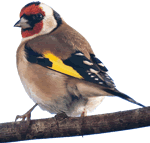
A recent discussion with a friend got me wondering about the differences between jam, jelly, conserve and marmalade and the origins of these words. I discovered that in some varieties of English and in other languages some or all of these words can be used interchangeably, for example in American English jelly can refer to both jam and jelly, and in Australian and South African English jam is used to refer to both jam and jelly, while these words refer to different things in the English of the UK, Canada and India.
Outside North America the jelly is also the name of a gelatin dessert known as jello or Jell-O in the USA and Canada.
Definitions
– Marmalade /ˈmɑːməleɪd/: a preserve made from citrus fruit, especially bitter ‘Seville’ oranges, and also from grapefruit, lemons and limes. Often contains shredded or chopped peel from the fruit.
Etymology: first appeared in English in 1480 and comes from the Portuguese marmelada (a preserve made from quinces – quince jam/cheese), from marmelo (quince), from the Latin melimelum, (honey apple), from the Greek μελίμηλον (melímēlon – a kind of apple grafted on a quince), from μέλι (meli -honey) and μήλον (mēlon – apple).
The practice of cooking fruit with honey or sugar to preserve it apparently dates back to the Greeks, who discovered that quinces cooked slowly with honey would set when cooled. This discovery was taken up by the Romans, who used this method to make preserves of such fruit as quinces, lemons, apples, plums and pears.
– Jam /dʒam/ – a sweet spread or conserve made from fruit and sugar boiled to a thick consistency. Usually the fruit is peeled and stones, pips, etc are removed before it is cooked.
Etymology: uncertain, perhaps related to jam (to press tightly) and of imitative origin.
– Jelly /ˈdʒɛli/ – a clear fruit spread made from sweetened fruit (or vegetable) juice. With jellies the fruit is chopped up but there is no need to peel or core it as the pulp resulting from cooking the fruit with water is filtered through a cloth such as muslin. The juice is then mixed with sugar and cooked until it sets.
Etymology: from Old French gelee (frost, jelly), from Latin gelata (frozen), from gelare (freeze), from gelu (frost). Related to the Italian word gelato (icecream).
– Conserve /kənˈsəːv/ a preparation made by preserving fruit with sugar; jam or marmalade. Also known as whole fruit jam. The fruit is often spread with sugar and left to steep for a few hours before it is cooked, and the cooking is shorter than with jam as the aim is that the fruit absorbs the sugar but doesn’t break up.
Etymology: from Old French conserve, from Latin conservare (to preserve), from con- (together) and servare (to keep).
In other languages fruit preserves have various names
– in French confiture can be used for jam, jelly and marmalade, which is also referred to as confiture d’oranages or marmelade d’oranges. marmelade is defined as ‘stewed fruit, compote’ in my French dictionary. Jelly/jello, the gelatin dessert, is known as gelée.
– in German Marmelade is jam, jelly and marmalade; Orangenmarmelade is also used for marmalade, and Konfitüre for jam. Jelly/jello is known as Wackelpeter or Wackelpudding.
– in Czech marmeláda is used for jam, jelly and marmalade, though džem (jam) and želé (jelly) also exist.
Sources: www.oxforddictionaries.com, wikipedia.org, www.etymonline.com, langtolang.com http://www.slovnik.cz/




